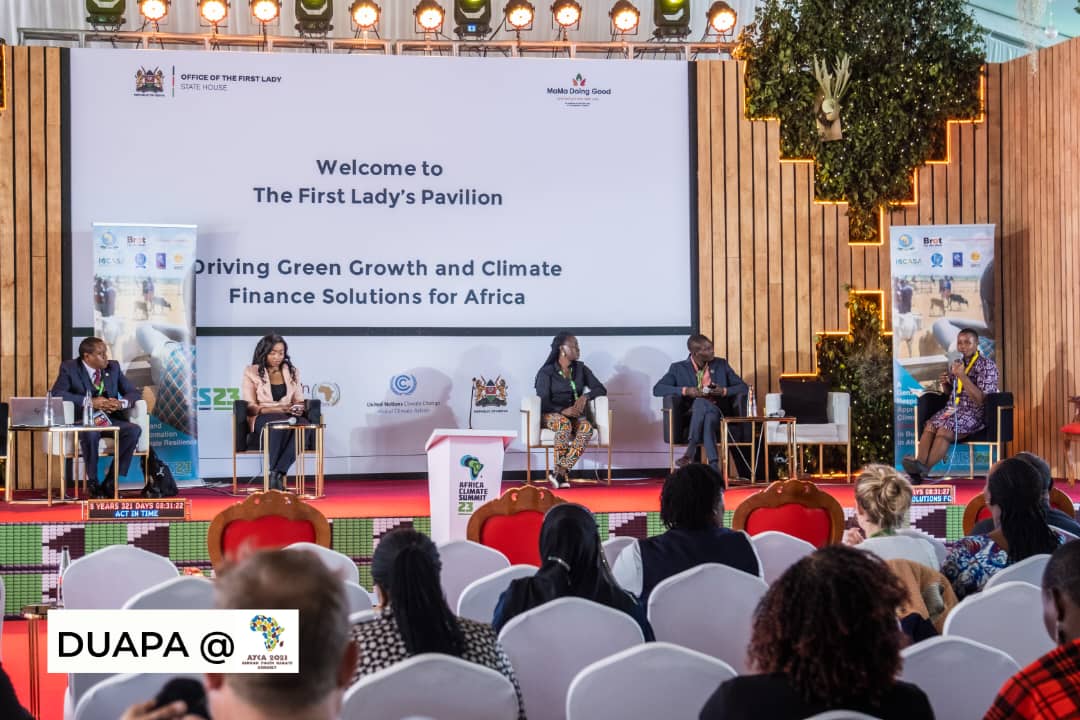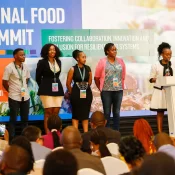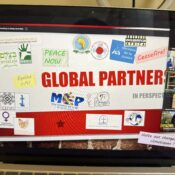
Reflecting on the Africa Climate Summit and Africa Climate Week
It has been one week since the inaugural Africa Climate Summit (ACS) convened in Nairobi, Kenya, organized by the Africa Union and the Kenyan Government. Coinciding with this event, the United Nations Climate Change Africa Climate Week (ACW) also took place at the exact location. Our organization, the Africa Centre for Sustainable and Inclusive Development, had the privilege of actively participating in both gatherings.
During the ACS, we were honored to host a side event focused on “Integrating Gender-Responsive Strategies and Faith-based Principles into Conflict Transformation for Climate Resilience in Africa.” The event was hosted in partnership with International Alert, KAIROS, ICCASA, Lake Region Empowerment Network, Bread for the World, and the African Council of Religious Leaders. This event featured a diverse panel of experts who delved into various facets of climate-induced conflict transformation. The discussions spanned topics such as the gendered impact of climate-induced conflict on community climate resilience; the effects of such conflicts on marginalized communities’ livelihoods; the role of agroecology in such conflict’s transformation; the integration of traditional knowledge, scientific advancements, and indigenous practices into agroecological approaches; and the importance of a multisectoral approach, including faith-based perspectives, in successful women-led environmental restoration models with a positive impact on conflict transformation.
During this enlightening side event, a call to action emerged, shaped by the discussions both at the side event and those of the prevent held at the Sarova Stanley Hotel. The key calls to action were as follows:
1. Build the adaptive capacity of marginalized gender groups to withstand climate shocks. This should involve implementing affirmative action to facilitate their access to climate finance.
2. Develop a comprehensive multisectoral framework aimed at systematically reducing conflict-related issues such as sexual violence, human trafficking, child marriages, displacement, and other forms of violence against marginalized gender groups.
3. Establish inclusive, conflict-sensitive climate financing models that are robust, transparent, accountable, and subject to monitoring and evaluation to ensure that climate finance reaches communities in need.
4. Safeguard local and indigenous knowledge and advocate for its inclusion in global climate science and policy processes. Indigenous Peoples possess a wealth of knowledge and experience that can be invaluable in addressing the climate and conflict crises.
Regrettably, most of these critical points were not fully reflected in the Nairobi Declaration. We remain hopeful that they will be integrated into Africa’s position and global Climate Action as we collectively strive towards COP28 and beyond.
During ACW, we actively engaged in the United Nations Framework Climate Change’s Adaptation Committee discussions, which focused on enhancing coherent regional action on adaptation. This initiative aimed to promote coordinated and effective adaptation action worldwide. The engagements were part of a series of regional meetings dedicated to the Africa region. Throughout these meetings, stakeholders collaboratively developed a deeper understanding of region-wide and transboundary adaptation actions and support.
These engagements brought together regional organizations, development banks, and other key stakeholders to foster synergies and collaborative efforts toward a more resilient future. The goal was to explore solutions that align with the global adaptation agenda and address existing gaps and needs. Stakeholders identified areas for collaboration and contributed to the formulation of a long-term initiative for coordinated adaptation action, led by the Adaptation Committee, at the global level.
We are delighted to have been a part of the Adaptation Committee’s work and eagerly anticipate future engagements with the committee and its stakeholders.



